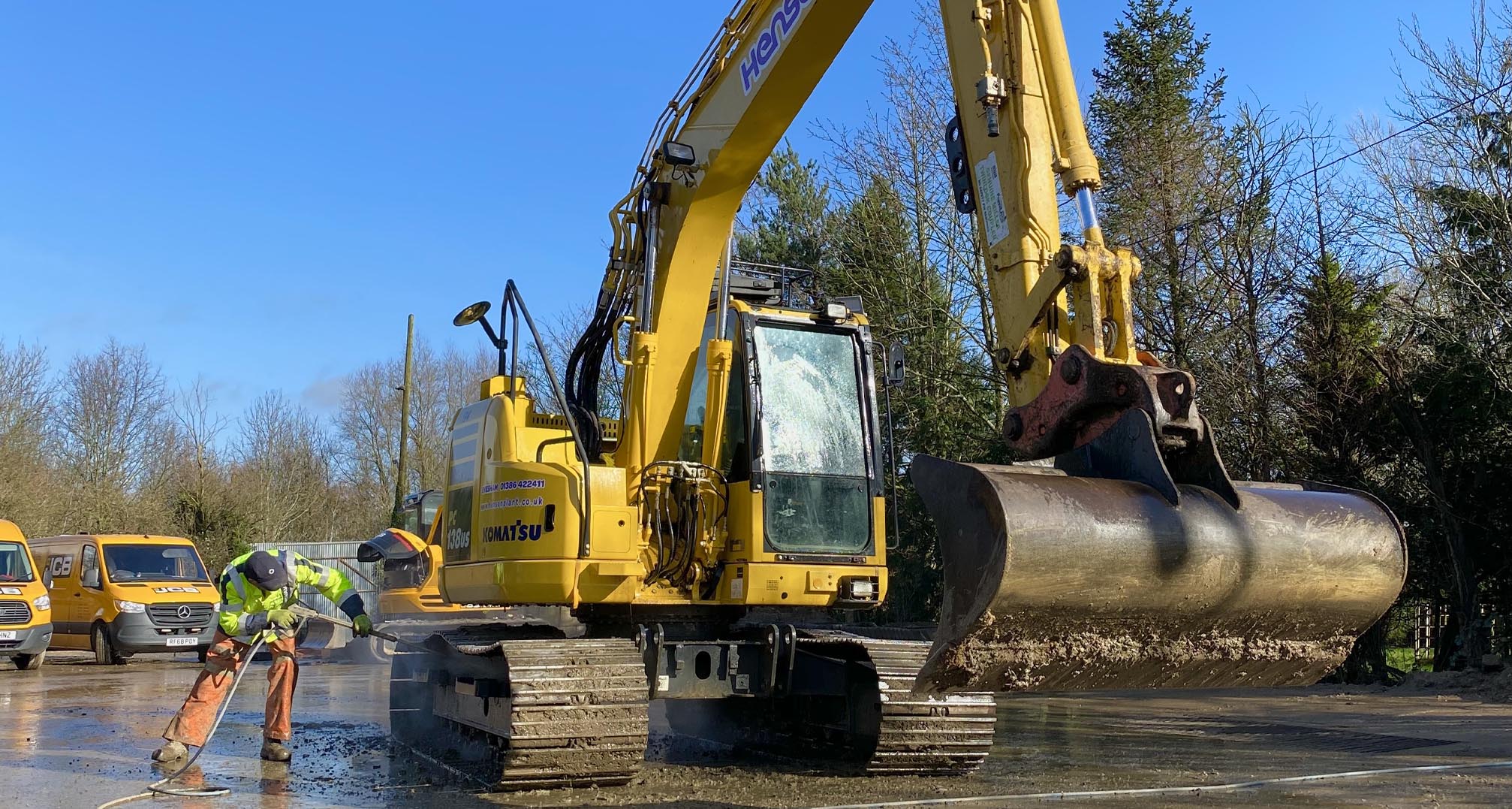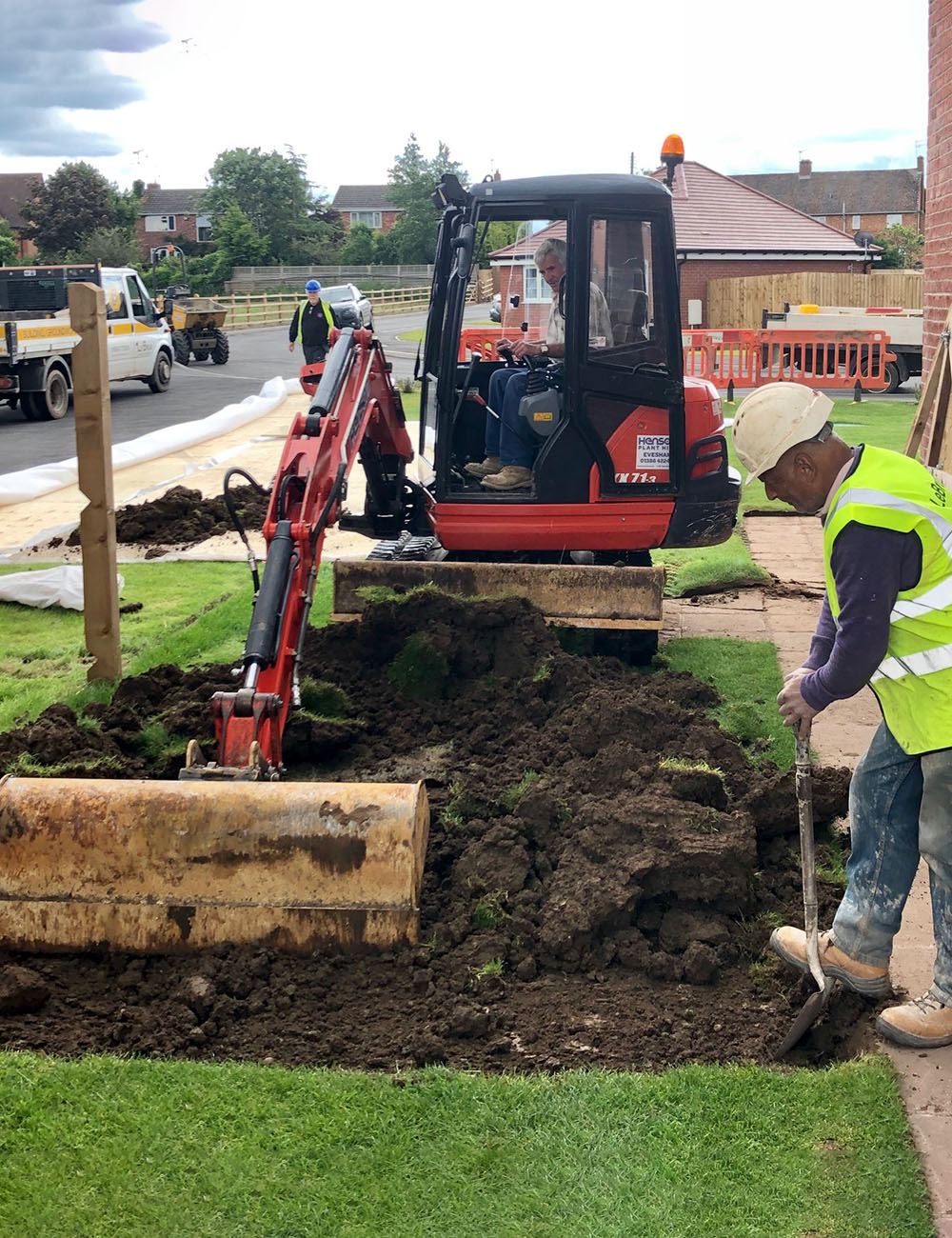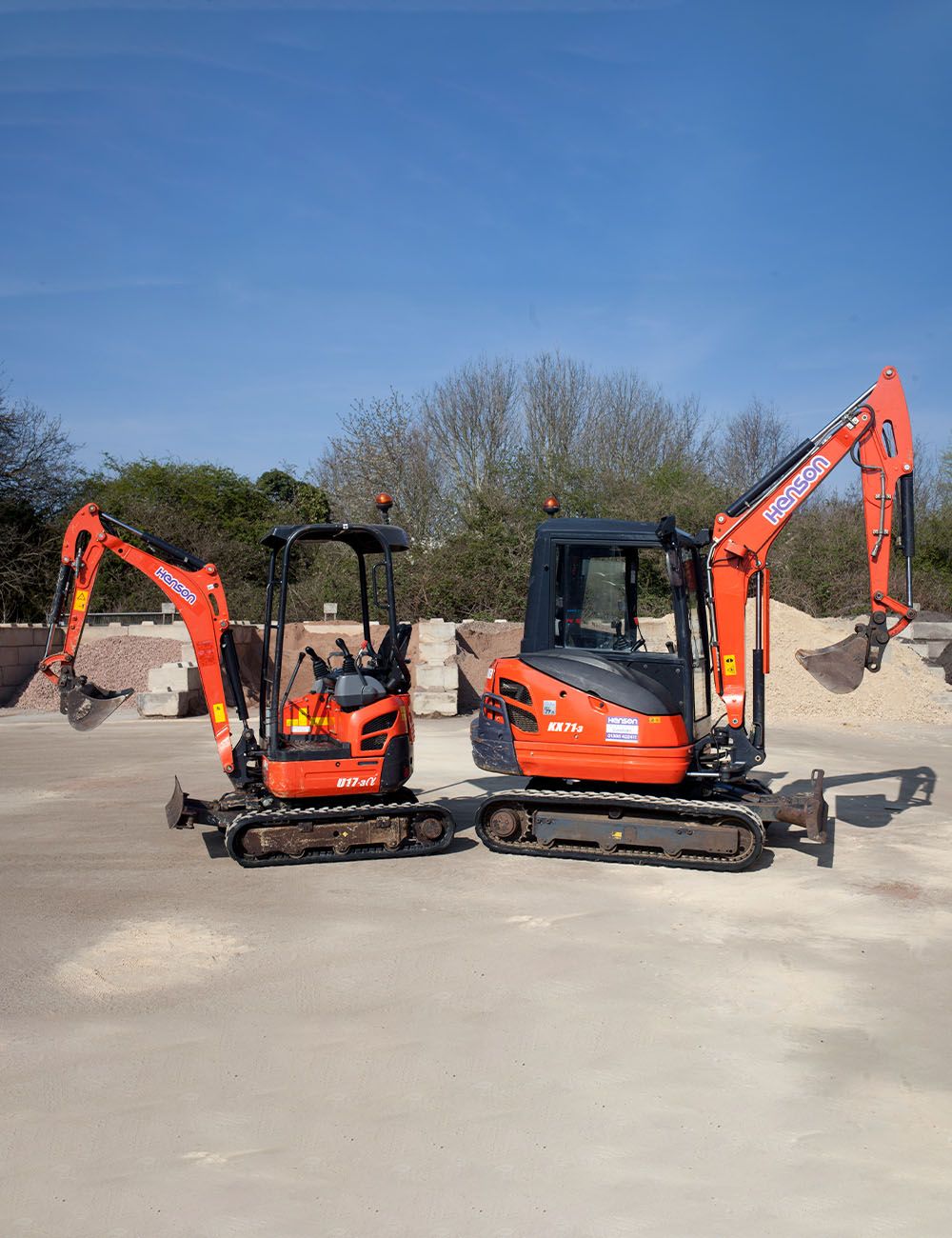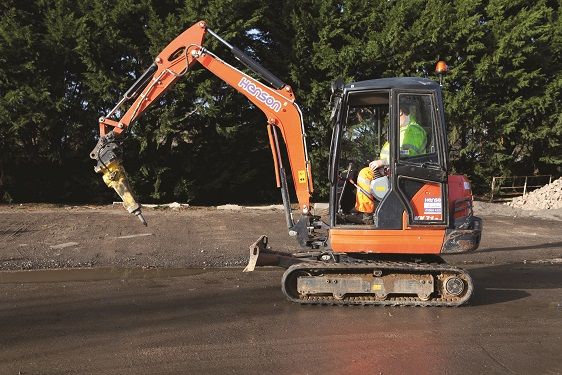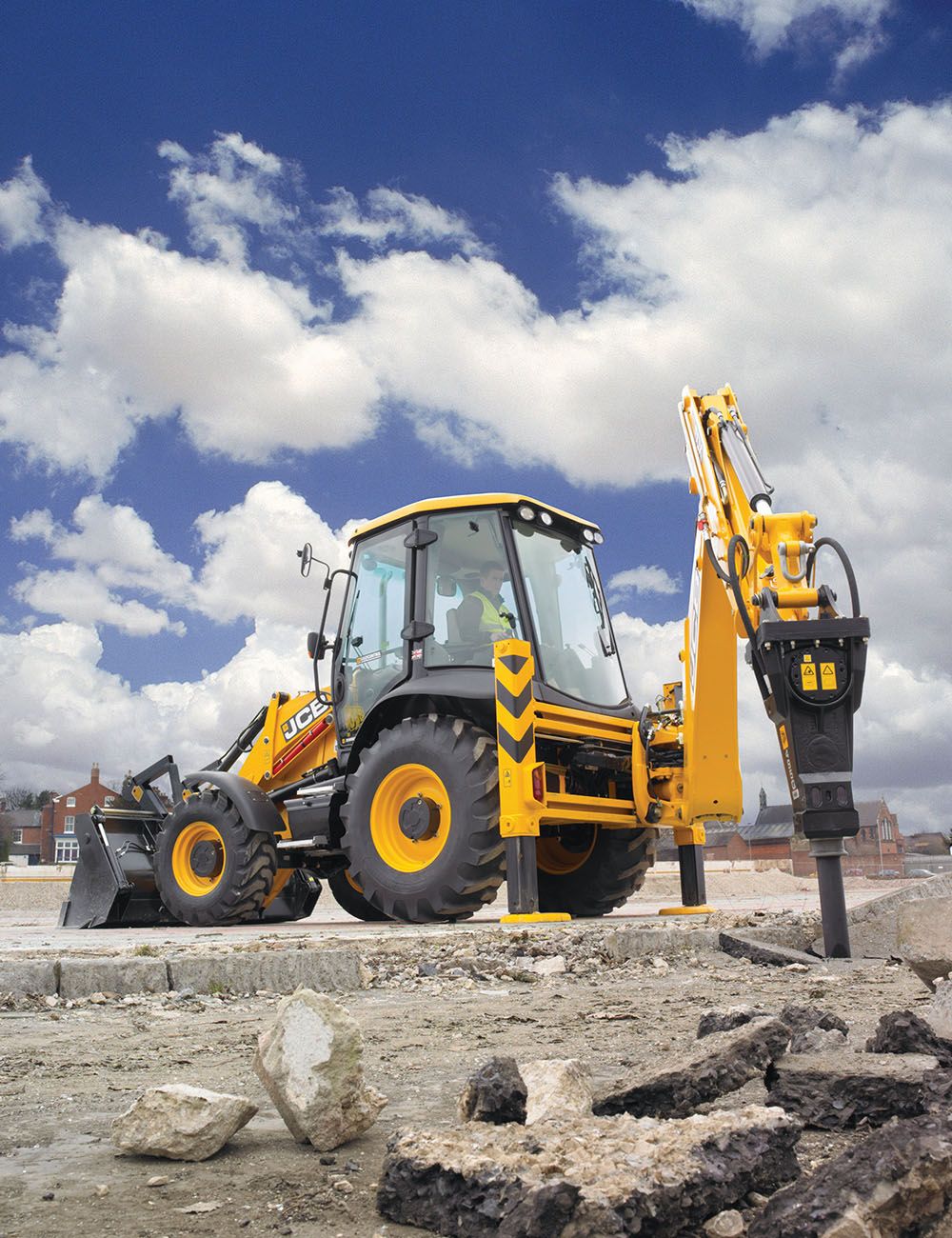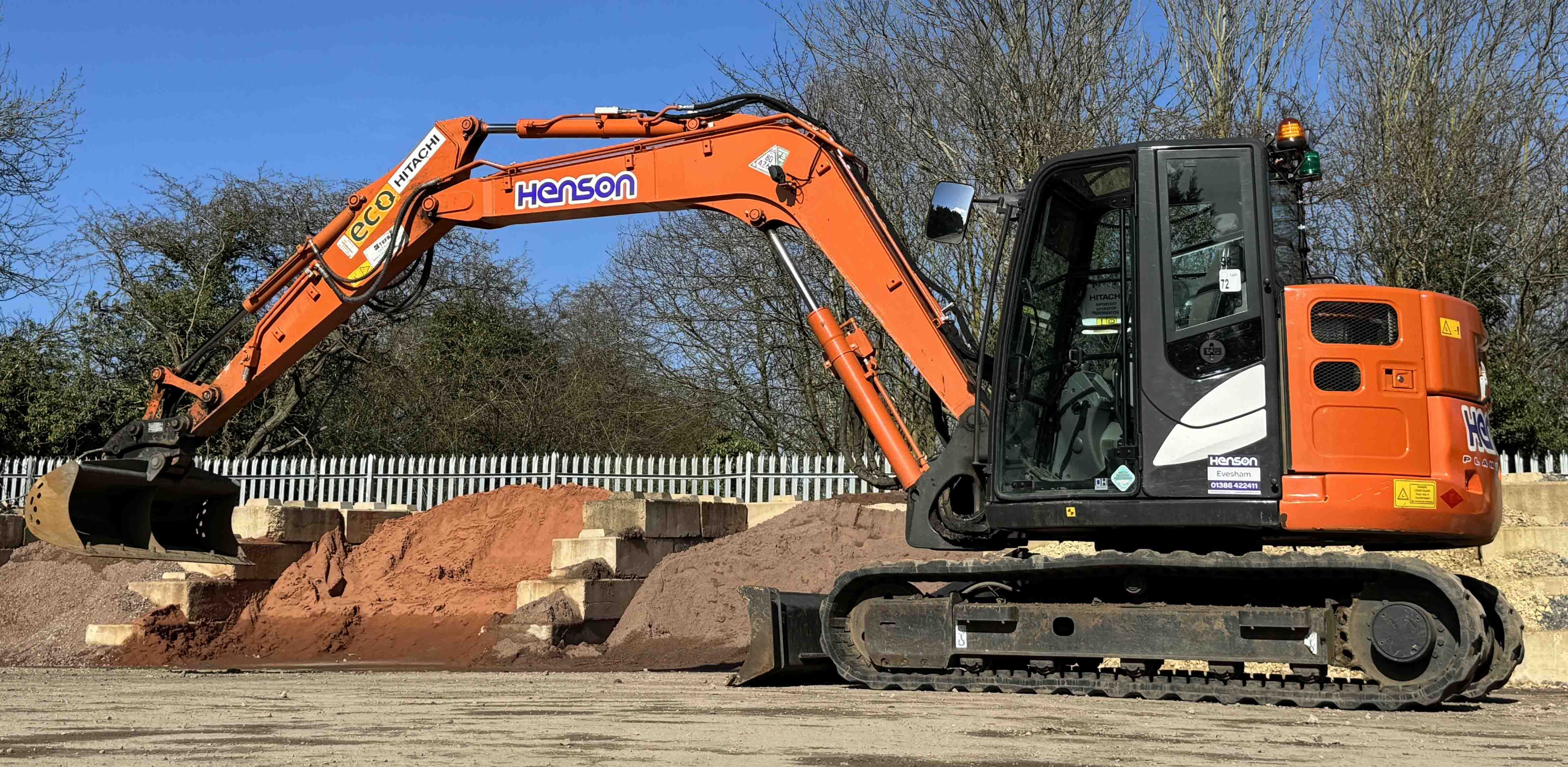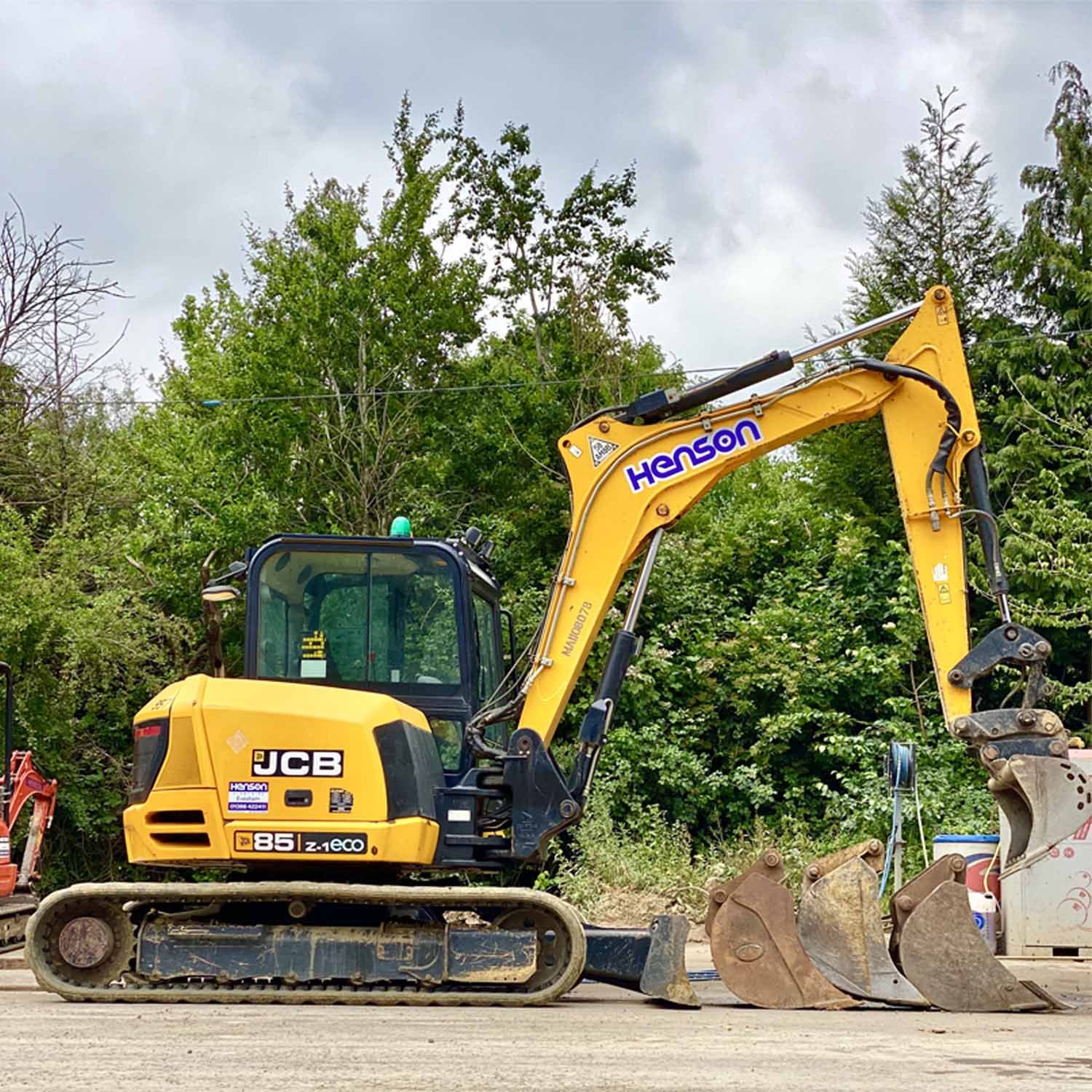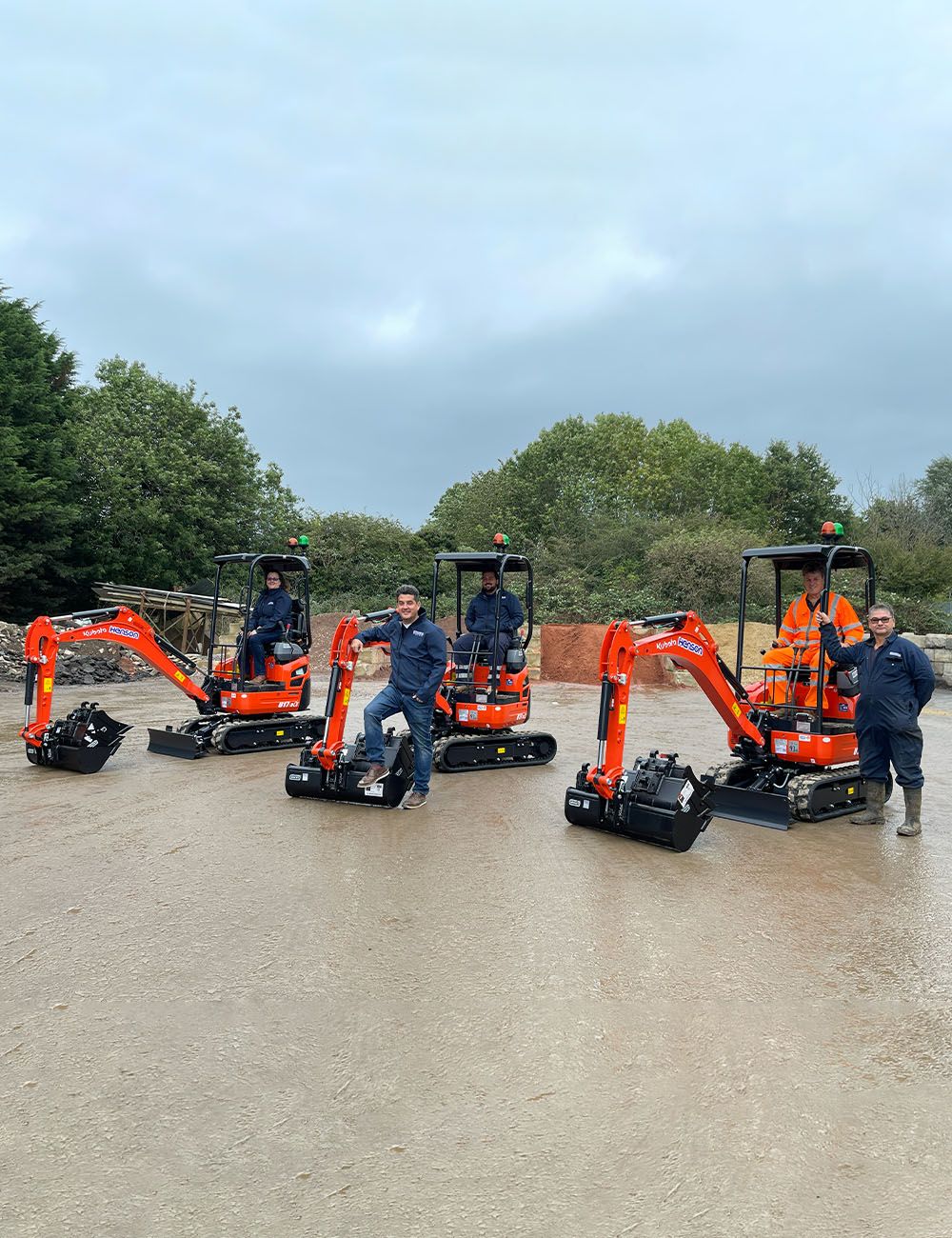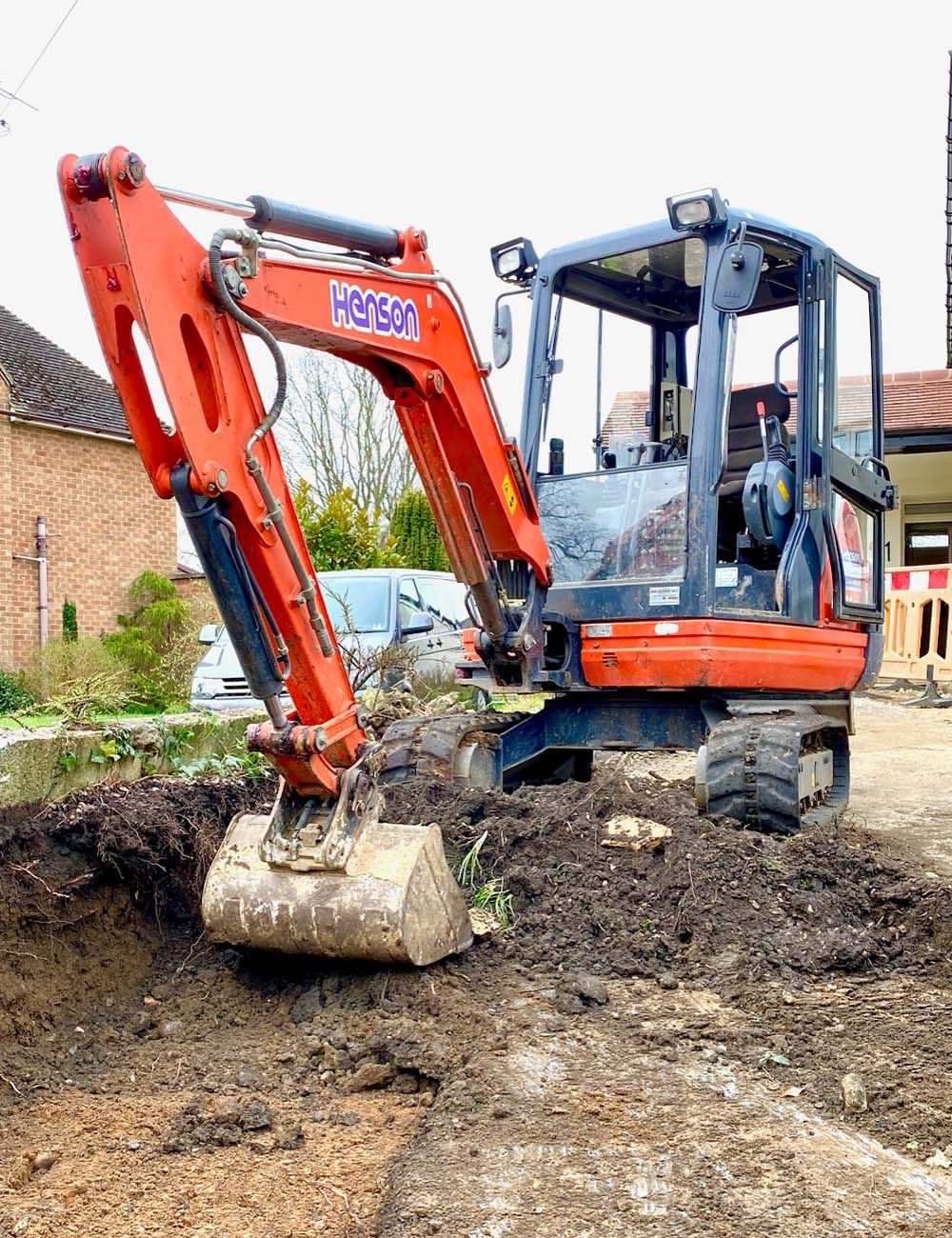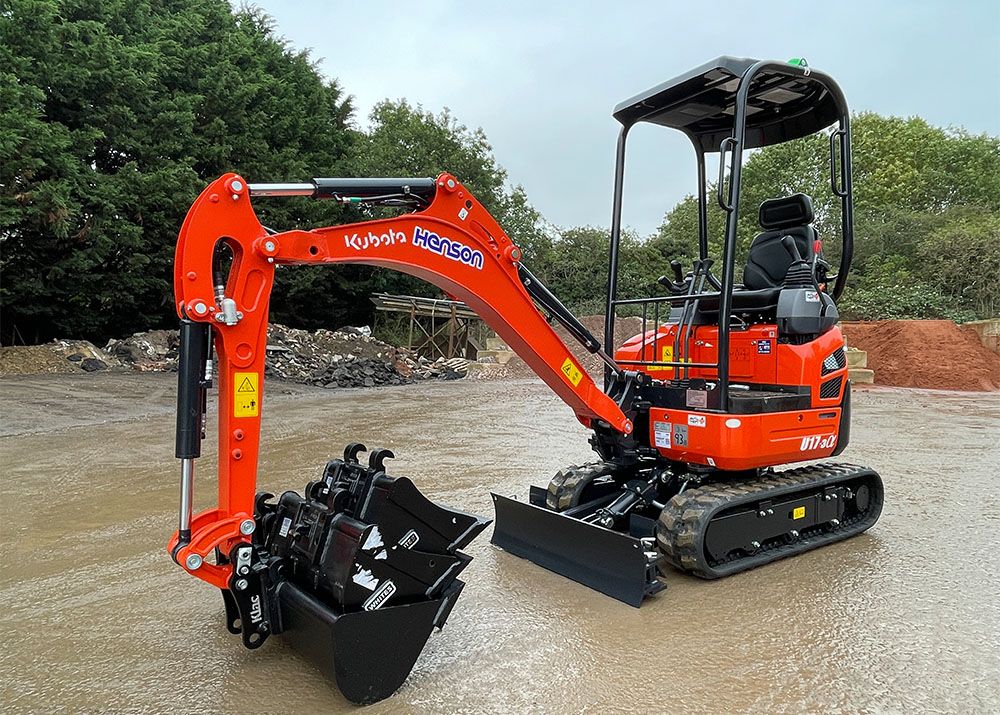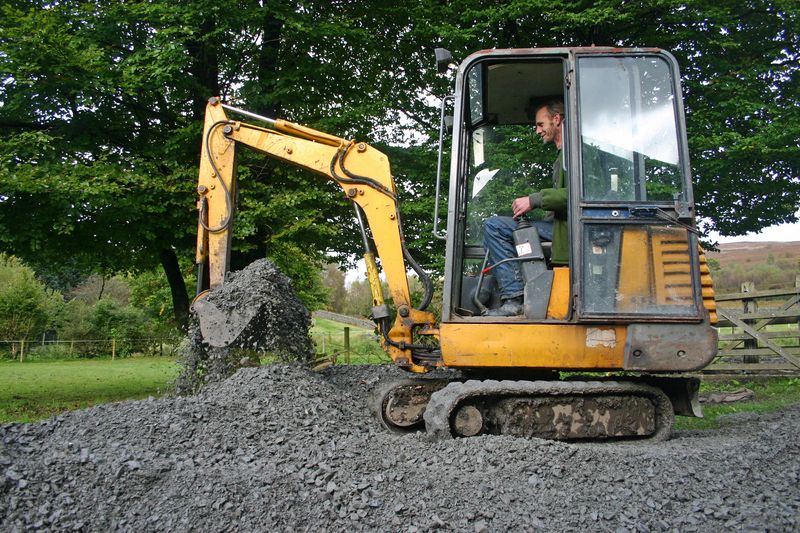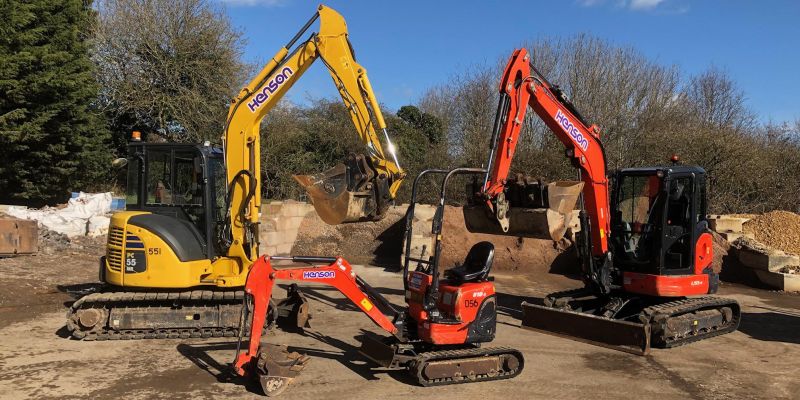
What does the tonnage of an excavator mean?
Blog
While this question might seem a little out there, the tonnage of an excavator is something anyone who wants to do construction work should know about. When it comes to heavy machinery in construction and knowing what plant hire you need to complete your project, an excavator's tonnage plays a pivotal role in determining the capabilities and efficiency of the job site.
In this blog, we will examine excavator tonnage, how it affects the projects each machine can do, and what tonnage typically accompanies each machine.
Explaining Excavator Tonnage
Tonnage refers to the weight or load capacity that an excavator can lift or handle. In construction, understanding excavator tonnage is crucial as it directly influences the machine's size, power, and capabilities, impacting its performance on various job sites.
An excavator's tonne rating typically includes its operating weight, which encompasses the machine's weight along with additional attachments, fuel, and operator weight. This metric provides insight into an excavator's lifting capacity, digging force, and overall performance on different terrains.
What are the most common types?
Standard tonne classifications for excavators range from mini excavators (1-6 tonnes) to medium-sized excavators (6-10 tonnes) and large excavators (10 tonnes and above), each tailored to specific tasks and project requirements.
Excavator tonnage is a primary indicator of the machine's strength and lifting capacity. The tonnage rating determines how much weight an excavator can lift, move, or dig effectively.
This aspect is crucial when considering tasks involving moving heavy materials, such as rocks, debris, or soil, where the excavator's tonnage dictates efficiency and productivity.
1) Mini Excavators (1-10 Tonnes):
Compact and versatile, mini excavators are ideal for tight spaces, landscaping projects, and residential construction. Their manoeuvrability and precise control make them suitable for trenching, foundation work, and utility installations.
2) Medium-Sized Excavators (10-20 Tonnes):
Balancing power with agility, medium-sized excavators excel in general construction, road building, and utility maintenance projects. With enhanced reach and digging depth, they efficiently handle tasks such as site clearing, digging trenches, and material handling.
3) Large Excavators (20-30 Tonnes and Above):
Designed for heavy-duty applications, large excavators tackle large-scale construction, mining, and infrastructure projects. Their robust build and high tonnage capacities enable them to handle tasks like excavation, rock breaking, and hauling with precision and strength.
Factors Influencing Excavator Tonnage
Several key factors influence an excavator's tonnage, collectively determining the machine's capabilities and performance on construction sites.
Factors Influencing Tonnage:
-
Engine Power: The horsepower of the excavator's engine plays a crucial role in determining its tonnage capacity. Higher horsepower engines typically correspond to higher tonnage ratings, enabling the excavator to handle heavier loads and operate more efficiently.
-
Hydraulic System: An excavator's hydraulic system is instrumental in its lifting capacity and overall performance. The design and strength of the hydraulic system influence the tonnage rating, allowing the excavator to lift, dig, and move materials effectively.
-
Boom and Arm Configuration: The length and configuration of the excavator's boom and arm impact its reach and digging depth capabilities. Different boom and arm setups can affect the machine's tonnage capacity, influencing its ability to reach further distances and excavate at varying depths.
-
Counterweight: An excavator's counterweight plays a significant role in balancing the machine during lifting operations. The size and placement of the counterweight can influence the excavator's stability and lifting capacity, contributing to its overall tonnage rating.
Matching Tonnage to Project Needs
Selecting the appropriate tonnage of an excavator is crucial for successfully executing construction projects. Matching the excavator's cargo to the project's specific requirements ensures optimal performance, efficiency, and safety on the job site.
From digging trenches and demolishing structures to lifting heavy materials and shaping landscapes, excavators play a pivotal role in streamlining workflows, enhancing productivity, and delivering results that meet the demands of modern construction practices.
Selecting the Right Tonnage
-
Assess Project Scope: Evaluate the project's scope, including the type of materials to be handled, digging depth requirements, and lifting capacities. Understanding these aspects will help determine the tonnage needed for efficient project completion.
-
Consider Site Constraints: Consider any site constraints, such as space limitations, access restrictions, and environmental factors, that may impact the choice of excavator tonnage. Smaller excavators with lower tonnage ratings are ideal for tight spaces, while larger tonnage excavators may be suitable for open sites with ample room to manoeuvre.
-
Evaluate Material Handling: If the project involves moving heavy materials or working with dense soils, opting for an excavator with a higher tonnage capacity is advisable. This ensures the machine can lift, carry, and transport materials effectively without straining its capabilities.
-
Factor in Digging Depth and Reach: Projects requiring deeper excavation or longer reach capabilities necessitate excavators with higher tonnage ratings. Larger tonnage excavators offer increased digging depths and extended reaches, making them suitable for tasks requiring substantial earthmoving operations.
Scenarios for Different Tonnages:
-
Mini Excavators (Small Tonnage - below 6 Tons):
-
Ideal for residential projects, landscaping, and more productive light-duty excavation tasks.
-
Suitable for digging trenches, backfilling, and working in confined spaces.
-
Trenching: Mini excavators are adept at digging trenches for utilities such as water pipes, electrical cables, and drainage systems. Their compact size allows them to easily navigate tight spaces and manoeuvre close to existing structures, making them ideal for precision trenching.
-
Foundation Digging: Mini excavators play a vital role in digging foundations for buildings, extensions, or landscaping features in residential or small-scale construction projects. Their ability to access confined areas while maintaining dig depth and reach makes them invaluable for foundation work.
-
Landscaping: Mini excavators are popular for landscaping projects involving grading, levelling, and earthmoving. From clearing debris and shaping terrain to installing retaining walls and creating garden features, these handy machines enhance efficiency and precision in landscaping endeavours.
-
Demolition: In selective demolition tasks where precision is key, mini excavators excel at dismantling structures, breaking down concrete, and removing debris. Their controlled operation and attachment compatibility are effective tools for targeted demolition work.
-
Material Handling: Mini excavators equipped with grapples, buckets, or forks can efficiently handle materials such as gravel, mulch, and debris on construction sites or landscaping projects. Their ability to lift, move, and accurately place materials enhances productivity and streamlines workflow.
-
Utility Installations: Mini excavators are instrumental in installing underground utilities like sewer lines, gas pipelines, and irrigation systems. Their compact design allows for precise excavation near existing infrastructure without causing extensive disruption.
-
Site Preparation: Mini excavators contribute to efficient site preparation for construction projects, from site clearance and debris removal to grading and soil compaction.
-
-
Medium Tonnage (5-20 Tons):
-
A versatile choice for various construction projects, including foundation work, utility installations, and small-scale site development.
-
Balances power and manoeuvrability, offering efficiency in medium-sized projects.
-
General Construction: Medium excavators are workhorses in general construction tasks, including site preparation, excavation, and material handling. Their moderate size and lifting capacity make them well-suited for various applications on construction sites, from digging foundations to moving heavy materials.
-
Road Building and Maintenance: In road construction projects, medium excavators play a vital role in trenching, grading, and drainage work. Their reach and digging depth capabilities make them ideal for shaping roadbeds, clearing ditches, and maintaining roadside infrastructure.
-
Utility Installation: Medium excavators are instrumental in installing underground utilities like water mains, sewer lines, and telecommunications cables. Their power and precision enable operators to excavate trenches accurately and safely, making them essential for utility infrastructure projects.
-
Land Clearing and Site Development: Medium excavators offer the muscle and efficiency needed to tackle large-scale tasks in land clearing, site development, and earthmoving operations. These machines streamline site development processes, from clearing vegetation to levelling terrain and preparing sites for construction.
-
Material Handling and Loading: Medium excavators with buckets, grapples, or hydraulic thumbs excel in material handling and loading operations. Whether it's moving soil, aggregates, or debris on a construction site, these machines provide the strength and reach needed for efficient material handling.
-
Rock Excavation and Quarry Work: With specialised attachments like rock buckets or hydraulic breakers, medium excavators can perform rock excavation tasks in quarries, mining operations, or rocky terrain. Their power and stability make them valuable assets for demanding excavation projects.
-
Foundation Excavation: Medium excavators are well-suited for digging deep and precise foundations for buildings, bridges, and other structures. Their reach and digging capabilities enable operators to excavate footings and trenches accurately, ensuring solid foundations for construction projects.
-
-
Large tonnage (20+ Tons):
-
They are suited for heavy-duty excavation, road construction, mining operations, and large-scale earthmoving projects.
-
Offers superior lifting capacity, digging depth, and reach for tackling demanding tasks efficiently.
-
Earthmoving and Excavation: Large excavators excel in massive earthmoving and excavation projects, including digging foundations for skyscrapers, creating reservoirs, or reshaping landscapes for infrastructure development. Their substantial reach, digging depth and lifting capacity make them indispensable for moving vast quantities of earth and materials efficiently.
-
Mining Operations: In the mining industry, large excavators play a pivotal role in extracting minerals, ores, and other valuable resources from the earth.
-
Heavy Construction Projects: Large excavators are essential assets in heavy construction projects such as roadworks, bridge construction, and dam building. Their ability to tackle challenging terrain, lift heavy loads, and operate with stability makes them ideal for handling large-scale construction tasks that require significant digging and material handling capabilities.
-
Demolition and Deconstruction: For demolition projects involving large structures or buildings, large excavators equipped with demolition attachments like shears or crushers offer the power and precision needed to dismantle and remove debris efficiently. Their controlled operation ensures safe and effective deconstruction processes.
-
Bulk Material Handling: Large excavators with high-capacity buckets or grapples are proficient in bulk material handling tasks, such as loading trucks, stockpiling aggregates, or managing waste at industrial sites. Their reach and lifting strength enable them to move large volumes of materials quickly and efficiently.
-
Infrastructure Development: Large excavators are crucial in infrastructure development projects, including highways, railways, and ports. Whether excavating trenches for utilities, shaping embankments, or handling heavy construction materials, these machines contribute to the progress and efficiency of infrastructure initiatives.
-
Forestry and Land Reclamation: In forestry and land reclamation projects, large excavators equipped with forestry mulchers or land-clearing attachments help clear vegetation, stumps, and debris to prepare land for reforestation or development. Their power and versatility facilitate efficient land management and restoration efforts.
-
By carefully matching an excavator's tonnage to the project's specific needs and considering scenarios where different tonnages excel, construction professionals can enhance productivity, optimise performance, and achieve successful outcomes in their construction endeavours.
Why is it so important to choose the right Tonnage?
Selecting the correct excavator tonnage has numerous benefits that enhance project efficiency, productivity, and overall success.
Understanding the advantages of choosing the right tonnage is essential for construction professionals looking to optimise performance, achieve cost savings, and uphold project safety standards.
Enhanced Project Efficiency:
-
Cost Savings:
-
Choosing the right tonnage helps prevent over-specification or underutilisation of equipment, leading to cost-effective operations.
-
Optimal tonnage selection reduces fuel consumption, maintenance costs, and operational expenses, resulting in long-term savings for the project.
-
-
Productivity Gains:
-
Matching tonnage to project requirements enhances operational efficiency, allowing for quicker completion of tasks and improved project timelines.
-
The right cargo ensures that the excavator can handle materials effectively, minimising downtime and maximising productivity on the job site.
-
-
Safety Implications:
-
Selecting the correct tonnage promotes safety by ensuring the excavator can operate within its designated capacity limits, reducing the risk of accidents or equipment failures.
-
Proper tonnage selection enhances stability and control during lifting and digging operations, prioritising the safety of workers and maintaining a secure work environment.
-
Final Thoughts
Understanding the significance of tonnage in excavators unveils the power and efficiency these machines bring to construction sites and projects. From mini excavators with nimble precision to medium excavators balancing agility and strength and large excavators embodying sheer power, each tonnage category reflects a different set of applications and tasks the excavator can undertake.
If you would like to learn more about the plant hire we have to offer, please fill in the form below, and a member of our team will be in touch as soon as possible.
Articles
